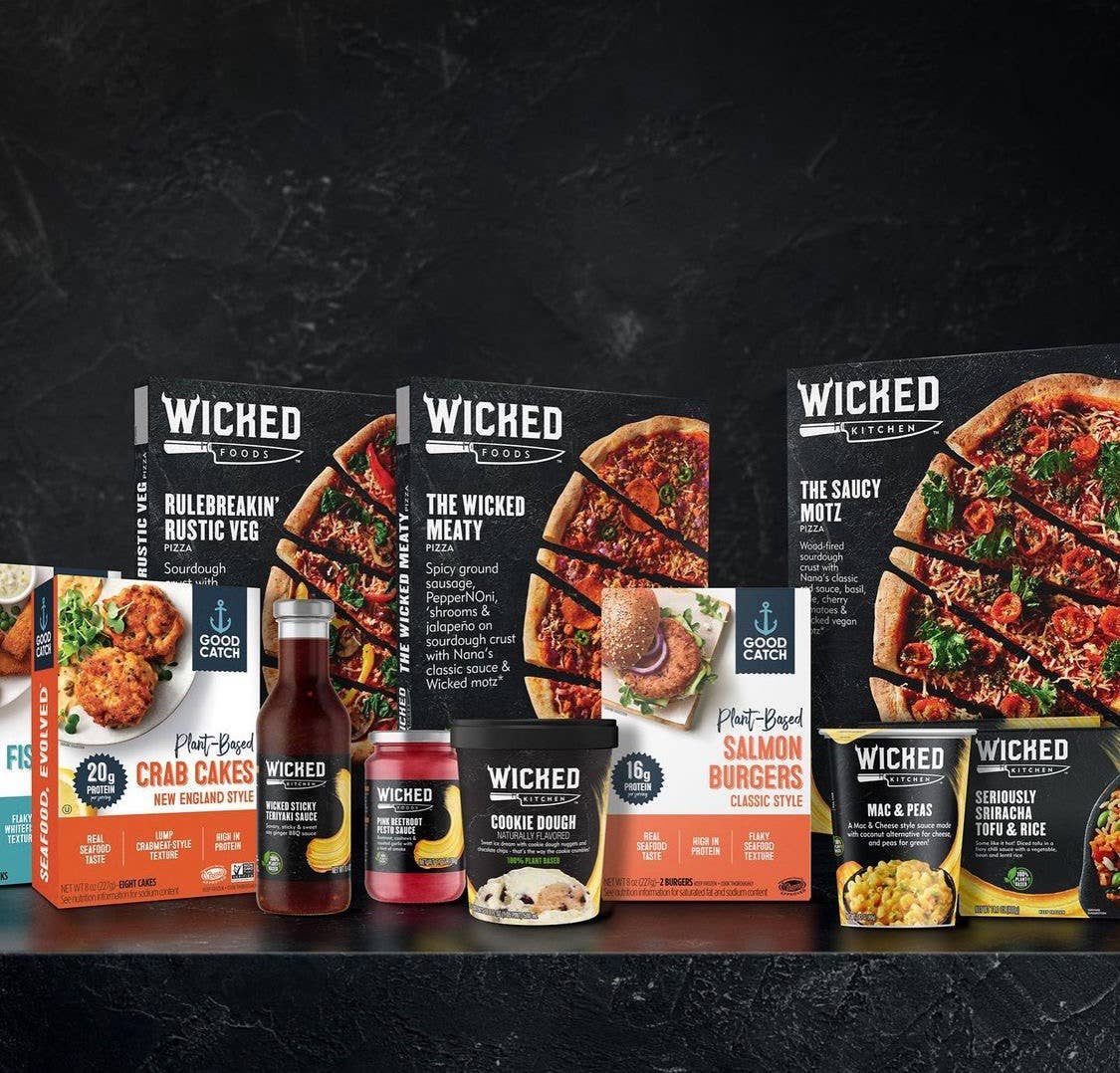
GOOD Meat Raises $97 Million, Now the Highest-Funded Cultured Meat Company
Could the next chicken breast you eat be cruelty-free? GOOD Meat – the cultivated meat brand from sustainable food company Eat Just – is now the largest cultured meat company on the market, securing an additional $97 million in new funding to bring cell-cultured meat into the mainstream.
The most recent funding package builds upon the company’s recent $170 million funding round, bringling GOOD Meat’s total investments to date to $267 million. The additional investment package will be used to advance the development and distribution of its cultivated meat products that have already debuted in Singapore and are expected to debut on the Qatari market soon.
The cultivated meat pioneer will also use the funding to expand its advisory board and developmental team. GOOD Meat just announced that former US Secretary of Agriculture Dan Glickman will join the company as an advisor. Alongside Glickman, the former Executive President of chemical company DuPont Jim Borel will join the Board of Directors.
“I'm proud to see our company take the next step toward building large-scale cultivated meat production,” co-founder and CEO of Eat Just Josh Tetrick said. “This investment, along with the guidance of Secretary Glickman and Jim Borel, puts us in a position to execute our plans in multiple regions around the world.”
GOOD Meat is now supported by an impressive and extensive panel of investors that include UBS O’Connor, Graphene Ventures, K3 Ventures, TED Curator Chris Anderson’s venture capital fund Resilience Reserve, businessman Fernando Chico Pardo, and many others.
The investment package will push the company’s production capacity to new levels. Currently, GOOD Meat’s cultivated meat equipment reaches 1,200 liters, but Tetrick explained that to ensure the company’s cell-based products can become a mass consumer product it would need bioreactors that hold the capacity for more than 100,000 liters (approximately 26,500 gallons). As several countries inch closer to regulatory approval, GOOD Meat is preparing its cell-based meat to make its mass-market debut.
“I’m delighted to join GOOD Meat’s Advisory Board where I can assist the company in its efforts to provide protein options that can ultimately help feed a growing and hungry population worldwide, safely and sustainable,” Glickman said. “While I will always support family farmers’ work to feed the world in the U.S. and elsewhere, this company’s innovative technologies can augment opportunities over the long term for consumers to expand their choices and improve their diets.”
The Good Food Institute released a report recently that found that cultivated meat companies raised more than $360 million in 2020, six times more than 2019. The report explained that the cultivated meat industry is predicted to become a frontrunner in the alternative protein market worldwide as companies and consumers begin to accept cell-based products.
“Continued investment is critical to ensure that cultivated meat can meet the moment –providing a more sustainable, safe, and secure way of feeding people with far fewer greenhouse gas emissions, far less land and water required, and no contribution to antibiotic resistance and pandemic risk,” executive director of the Good Food Institute Bruce Friedrich said at the time.
So far, Singapore is the sole country to allow the mass sale of cultivated meat. Once gaining regulatory approval GOOD Meat unveiled its inaugural cell-based chicken for the Singaporean public, but now other countries worldwide have started the process of allowing cell-based meat sales. Most recently, the Qatar Free Zones Authority (QFZA) and the country’s Ministry of Public Health recently indicated an intent to grant regulatory approval for GOOD Meat.
Stateside, the US Department of Agriculture’s Food Safety and Inspection Service published a notice regarding labeling for the cultivated meat and poultry industry last week. The advance notice of proposed rulemaking requested input about consumer expectations on nutritional value, naming products, economic data, and more.
“This ANPR is an important step forward in ensuring the appropriate labeling of meat and poultry products made using animal cell culture technology,” USDA Deputy Under Secretary for Food Safety Sandra Eskin said. “We want to hear from stakeholders and will consider their comments as we work on a proposed regulation for labeling these products.”
The Surprising Reasons these Five Country Singers Went Meat-Free
1. Carrie Underwood Loved Her Family's Farm Animals
Seven-time Grammy Award winner Carrie Underwood has been hailed for her “enormous” vocal range. When it comes to her diet, Underwood’s a fan of breakfast burritos and lots of tofu. She doesn’t shy away from the carbs, either. According to Cheat Sheet, one of her favorite snacks is a toasted English muffin with peanut butter.
2. Blake Shelton Wants to Keep Up With His Older Girlfriend
Singer, songwriter, and “The Voice” coach, Blake Shelton, 43, has been working to stay fit recently with help from his long-time love, Gwen Stefani, who is a vegetarian and told him to get off the meat if he wants to feel fitter and lose some weight. Shelton has been trying to keep up with Stefani's impressive fitness level, according to an interview Stefani gave this fall. The former No Doubt singer and Hollaback girl is a longtime vegetarian, eats a mostly vegan diet, and is super fit-- and at 50, looks younger than her years. A source told Gossipcop, “Gwen’s told him the way to lose it is to stay the hell away from meat and bad carbs.” We're rooting for him!
3. Shania Twain Has the Key to Gorgeous Skin
The best-selling female country music singer in history isn’t buying any expensive steak dinners after a performance. The “Queen of Country Pop” has sold more than 100 million records but says she keeps her meat-free diet simple. She is both vegetarian and eats very little dairy -- though at times has said she does eat eggs.
4. Annette Conlon, Folk Artist with a Passion
Americana singer and songwriter Annette Conlon is also a passionate vegan. She started “The Compassionette Tour,” in an effort to bring compassion, social consciousness, human interaction, and animal issues to a mainstream audience.
5. Johnny Cash, Walked the Vegan Line Late in Life
The Man in Black is synonymous with country music, even nearly two decades after his death (1932-2003), probably in part because of the biopic about his life starring vegan actor Joaquin Phoenix. Ask any die-hard country music fan (or your dad, for that matter) and they will tell you that Johnny Cash was one of the best-selling musicians of all-time. His scores of hits include “I Walk the Line” and "Hurt" "A Boy Named Sue" and dozens of others. Cash himself was believed to have lived meat-free later in life to help combat some health issues. At Johnny Cash’s Kitchen and Saloon in Nashville, you can also load up on the meat-free dishes as the restaurant boasts a fully stacked veggie menu that includes greens, sweet potato mash, and fried okra.
More From The Beet






